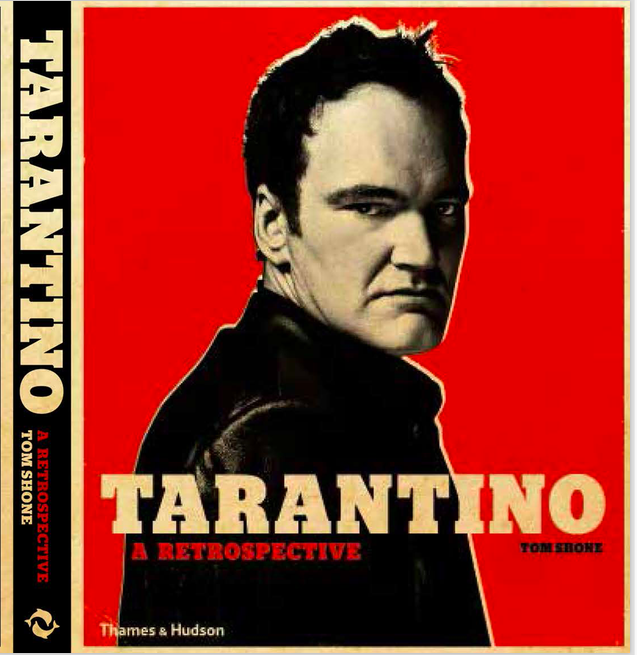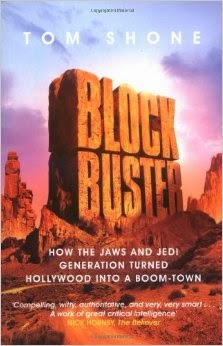skip to main |
skip to sidebar
INTERVIEW: HANS ZIMMER

Film composer Hans Zimmer is too sensible to play
favorites with his scores, but he hasn’t taken any new work since completing
his score for Christopher Nolan’s Interstellar this summer. “I threw everything
into it,” he says. “Right now, I'm not willing to go on another journey. I
don't quite want to leave it.”
This would make sense. Both score and film are about the
sweet sorrows of intergalactic parting, ramped up to full ambience across the Escher-like
distances of Einsteinian space-time. The $165-million epic is Nolan and Zimmer’s fifth
collaboration together, after the Dark
Knight Trilogy, and Inception,
Zimmer’s score for which singlehandedy rewrote the rule book for the
blockbuster: Zimmer’s dire, insistent “BRAAAMMM”,
sounded by an army of brass instruments, all playing in unison, at the very
bottom of their register, is now the klaxon-like call of summer. “I called Hans
before I even knew exactly I was going to do this project,” says Nolan. “We
realized we spent so much time on the other films we'd done, near the end of
the process, trying to penetrate the mechanisms we'd created and get back to
the heart of the story.” This time, he thought, “Let's flip the process. Let's
start with the score and then build out.“
A short time later, an envelope arrived at Zimmer’s office
containing a single sheet of paper on which Nolan had typed, using the same
typewriter given him by his father when he was 21, a short précis of the film,
drawing as much on Zimmer’s own relationship with his 13-year-old son Jake, as
the father-daughter relationship portrayed in the film. Zimmer worked for a day
and called Nolan’s wife Emma and the pair drove down to Zimmer’s studio in
Santa Monica, where the composer made the usual nervous sounds when playing a
filmmaker a new score, sneaking glimpses at him to see how it was going down.
Zimmer could tell Nolan was moved. At the end of it, he said simply, “I suppose I better make the movie, now.”
“Well, yes, but what is the movie?" asked Zimmer, and
Nolan started describing this “huge, epic tale of space and science and
humanity on this grand scale.”
“Chris, hang on, I've just written this highly personal
thing, you know?”
“Yes, but I now know where
the heart of the movie is,” replied Nolan, who referred to Zimmer’s demo
throughout production to keep himself and the film on track. It’s the piece of
music that plays over the end credits. The score itself,
released on iTunes on November 18th, is as remarkable for what it
does not contain as what it does. It has no
driving drums and string figures, no dominant-key brass swells such as was used
to herald the villain’s layer in the later Bonds. Instead it comprises a series
of hymn-like compositions for 34
strings, 24 woodwinds, four pianos, and 60 choral singers, in which the strains of 19th century romanticism and the ticking
clockwork of Phillip Glass can be heard equally. But the star of the show is
undoubtedly the 1926
four-manual Harrison & Harrison organ housed at the 12th-century Temple
Church in London and played in the movie by its director of music, Roger Sayer.
It was Nolan’s idea.
“He
has a quiet way of suggesting things,” says Zimmer, “He very quietly said to
me, ‘What about the pipe organ?’ Have you ever done a score with that?”
Zimmer
immediately saw the shape of it, saw the consonance with that of a rocket ship,
and also a breathy rhyme between the air pushing through the pipes of the organ and that being fed into the
suits of astronauts. “Between
the 17th century and the invention of the telephone exchange, the
pipe organ was the most complicated man-made creation,” he says. “Stand next to
them and you can hear them breathing, like giants. I just loved the idea that
we were, in a funny way, following on in this great endeavor, built over
generations — the idea of exploration and invention and time. I have a
suspicion, which Chris and I talked about, I said to him, ‘I think all movies,
all futuristic movies are inherently nostalgic’.”
A
quick test of this hypothesis reveals it is broadly true, in so far as
filmmakers have frequented sought to anchor the emotions of their futuristic
visions with backwards-facing scores. In 2001: A Space Odyssey Kubrick balanced
György Ligeti’s Atmosphères with Johann Strauss’s Blue
Danube Waltz. For Star Wars, John
Williams used a 19th century musical syntax, full of tumbling Korngoldian
brass fanfares and sweeping Steineresque strings, as befits a tale set “a long time ago in a galaxy far, far away.” Williams’s
entire career has been built on this principle of musical reverse-engineering. Spielberg called him “a modern relic from the lost era of film”. His score for Close Encounters of the Third Kind contains an echo of ‘When you Wish Upon a Star’. Close your eyes
and E.T. The Extra-Terrestrial is
scored like the romance it is. Jurassic
Park is a hymn with strains of Elgar, not such much Jurassic-era as
Darwinian. Zimmer’s
own Hollywood career began with a similar stroke of counter-intuition in the
opposite direction, when he scored Barry Levinson’s Rain Man — a road movie, crying out for slide guitars and a
harmonica or two — with a set of sleek, syncopated synthesisers, such as
much accompany a visit to Mars. Some might say that was exactly the trip as it
felt to Dustin Hoffman’s autistic savant, tunnelling through inner space.
Zimmer’s score
for Interstellar isn’t without
controversy. Some audience members have complained of not being able to hear
the dialogue in some sections of the movie, so rumbling are the bass notes on
that pipe organ; one cinema in Rochester has even put up a sign reading “Please
note that all of our sound equipment is functioning properly. Christopher Nolan
mixed the soundtrack with an emphasis on the music. This is how it is intended to sound.” The pay-off
came for the composer when he showed the finished film to his 13-year-old son
Jake at Nolan’s editing suite in his garage. “He's sitting next to me, and we're talking about a 16
year old teenager, sitting next to his father.
As a 16-year old the last thing you want to do is let your father know
that there any emotions. The last 20
minutes, he's crying and I mean sobbing. I'm looking straight ahead because I'm
trying to not invade his space and embarrass him. We get to the end of it and I lean in slightly,
and I go, ‘So, Jake, what do you think?
Is it all right?’ He goes, ‘All
right, Dad? It's a-maz-ing.’ When he said
‘amazing’ I wish I could have recorded it.”






















No comments:
Post a Comment